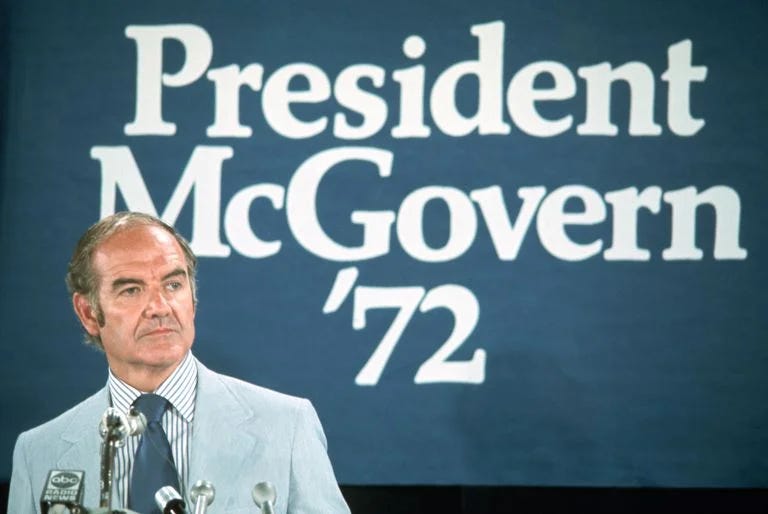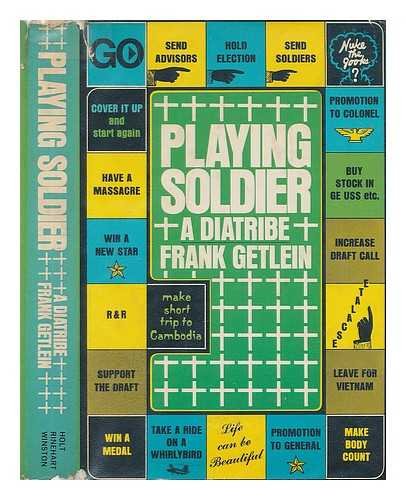W.J. Astore
To Fight the Unbeatable Foe
To dream the impossible dream/To fight the unbeatable foe/To bear with unbearable sorrow/To run where the brave dare not go …
Whether you call it the military-industrial complex (MIC), the national security state, the MICIMATT,1 the blob, or something else entirely, taking on the MIC and trying to restrain its influence and power is akin to dreaming the impossible dream.
President Eisenhower warned us about the grave threat posed to liberty and democracy by the MIC in 1961. In the early 1980s, as a college student, I wrote against the growth of the MIC and massive Pentagon spending under President Ronald Reagan. After I retired from the military, I started writing articles, giving interviews, etc. against the MIC and militarism in America. I’ve been doing it for fifteen years, and it hasn’t made any discernible difference. Why should it?
The MIC is massive and massively powerful. It consumes more than half of the federal discretionary budget. It employs millions of people. It is wildly profitable for major military contractors like Boeing, Lockheed Martin, and Raytheon. It is sold as essential to America’s national security and safety. Its uniformed members are lauded as heroes. We are all as Americans immersed in a matrix of militarism and imperialism since birth; to fight against it, then, is often seen as un-American.
Spoiler alert: I have no easy answers. There are no silver bullets. Ike called for an alert and knowledgable citizenry (that’s us) who would act as guards against the growing anti-democratic power of the MIC. The MIC responded by making sure we are kept largely docile and ignorant of its plans and actions.
When brave Americans do speak up, they are punished. Not people like me—I’m small fry. I mean people like Martin Luther King Jr., who called America the world’s greatest purveyor of violence during the Vietnam War. That speech made him unpopular even among many of his followers; exactly one year later, he was shot and killed.
People who truly pose a threat to the MIC are taught a lesson. Congresswoman Tulsi Gabbard, at the time also a major in the Hawaii Army National Guard, was smeared by NBC News as a Russian asset when she announced her candidacy for president in 2020. Gabbard was the only mainstream candidate criticizing the MIC and its disastrous regime-change wars. Dennis Kucinich, who bravely advocated for a Department of Peace, was sidelined and silenced by his own party (the Democrats). Jill Stein, who ran in 2016 as the Green Party candidate for the presidency, was also smeared as a “useful idiot” for Russia because she called for major reductions to war budgets.
There are many examples of brave Americans fighting the MIC. Edward Snowden told the truth about abuses of power by U.S. intelligence agencies; he’s in exile in Russia. Chelsea Manning went to prison for bravely exposing war crimes in Iraq. Daniel Hale is in prison for exposing the murderous results of America’s drone wars. Even foreign journalists like Julian Assange aren’t safe. Assange embarrassed the MIC and partially exposed the hideous face of war to Americans, and for that he’s being held in a maximum security prison under conditions meant to break him physically and mentally.
What is to be done? It’s flattering to me that a few readers think I might have answers. I have none. I’m not an organizer, I’m not an agitator or protester, I’m just a retired military schmuck looking for a new way forward for our country (and, by extension, for the planet). A new cold war is not a new way forward. Indeed, a new cold war will only ensure a hotter future for us all, if not an irradiated one.

I think George McGovern had the right approach in 1972. “Come home, America,” McGovern said. Stop trying to dominate the world. Stop claiming that democracy can be spread by bullets and bombs. Downsize the military and the whole MICIMATT and with the money saved send a check to every American. Call it a true peace dividend.
Support our troops—bring them home, is a commonsense message that holds appeal. Returning to Eisenhower, Ike once said that only Americans can truly hurt America. We hurt America when we exaggerate threats overseas, when we give blank checks to warmongers, indeed when we forget how hellish war truly is and how corrosive it is to our democracy (what’s left of it) and our way of life.
I’ve written so much about this that I know I’m repeating myself. And I’m probably preaching to the choir as well. But the choir must keep singing, even when the dogs of war howl to drown us out.
America needs a reformation or a revolution. A restoration of liberty where war and militarism are seen as the antithesis of liberty. Why can’t America be a shining city on a hill? Why do we instead choose to be a dark fortress bristling with cannons?
To dream the impossible dream/to fight the unbeatable foe …
Military-industrial-congressional-intelligence-media-academia-think tank complex. An awkward acronym that does help to capture the size and reach of the national security state. The MIC itself is supported by the mainstream media, many colleges and universities that are funded by the DoD, and all those think tanks in the DC area that are often funded by major weapons makers. Truly a Goliath awaiting a David with a slingshot.












